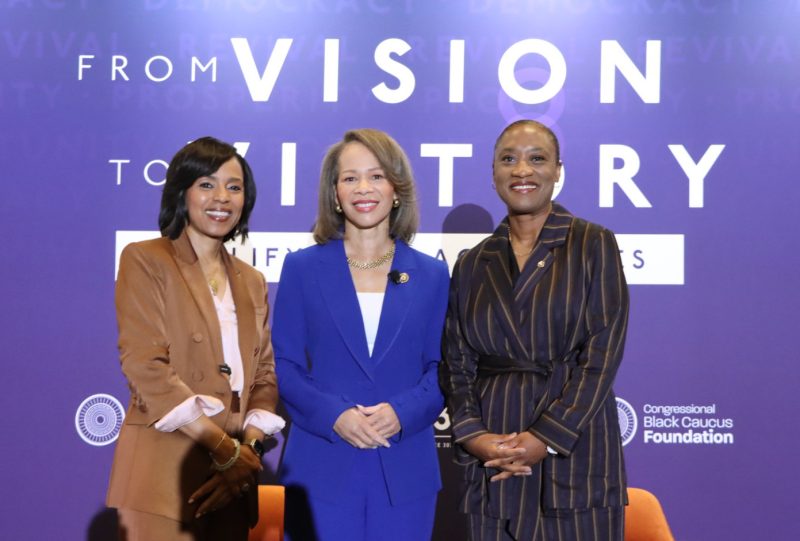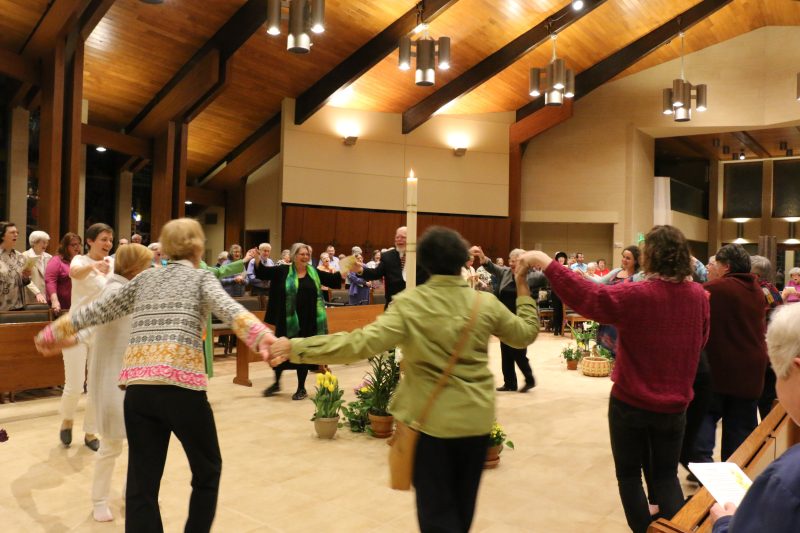
The ‘pragmatic optimist’ set to make history in a divided Senate
WILMINGTON, Del. — When Lisa Blunt Rochester was running to become Delaware’s first Black woman in Congress, a newspaper editorial board asked her an unusual question: Wasn’t she a bit nice for Capitol Hill?
Blunt Rochester (D-Del.) recalls trying to turn that doubt into a positive. “Well, maybe we need to do something different,” she remembered answering.
Now, after eight years as the cheerful optimist who led lawmakers in prayer and handed out masks during the Jan. 6, 2021, riot at the U.S. Capitol, she is favored to make history again by becoming the state’s first woman in the Senate and just the fourth Black woman to ever serve in the chamber.
Her close ally from neighboring Maryland, Angela D. Alsobrooks (D), is expected to win her race. If she does, they would become the first two Black women to serve together in the Senate.
And they would probably be sworn in together by the outgoing vice president, Kamala Harris, who became just the second Black woman to serve in the Senate in 2017. By January, Harris may also be the first woman and the first Black woman to be president-elect.
“Right now, we are all in the work phase and recognize that excitement in and of itself is not enough. We’ve got to use this excitement as the fuel to make sure that we get across the finish line first,” Blunt Rochester said in one of two interviews in recent days.
The weight of that potential moment on Jan. 3 is not lost on Blunt Rochester, who proudly displays a scarf that is emblazoned with the image of her great-great-great-grandfather’s voting card from Georgia, newly freed, in 1867.
“My vote, don’t take away my vote, yeah,” Blunt Rochester said Wednesday during an interview in her office here, paraphrasing what he might have thought at that moment. “I am a citizen of the state of Georgia.”
Unfurling the scarf in her Wilmington office, she wondered what her great-great-great-grandfather would have thought if he knew Blunt Rochester was on the verge of winning a seat in one of the most exclusive clubs in America, the Senate, where so few Black women have ever served.
Her sister found that voting card years ago. and Blunt Rochester got the image placed onto the scarf, which she makes sure to bring for important moments. She held it during her first swearing-in as a member of Congress as well as when her group of lawmakers and members of the media were trapped in a balcony above the House floor.
“All things work together for good,” she said, citing Romans 8:28 when leading her nervous colleagues in prayer.
Considering only three Black women have ever served in the Senate, Blunt Rochester cannot be considered a throwback to a different era. But her cheery disposition and work at building bridges across the aisle, without clamoring for the spotlight, feel somewhat anachronistic in an era where so many live for trolling the opposing party on social media and scoring hits on cable news.
She calls herself a “pragmatic optimist” — able to see the reality of particularly bad situations but determined to turn those into a positive outcome.
“It’s a choice. And I choose to operate this way because, number one, I want to be effective. Number two is it’s part of my faith,” Blunt Rochester said.
When President Joe Biden, her home-state icon, started his now-aborted reelection bid, he tapped Blunt Rochester to serve as one of seven campaign co-chairs, a role she also filled in 2020. She has stayed on under Harris, serving as a surrogate on the campaign trail and in media interviews
History called for Blunt Rochester early last year when Sen. Tom Carper (D-Del.) announced that he was retiring at the end of 2024. He threw his support behind his former intern to succeed him, as did most every prominent Delaware Democrat.
“She was the one that checked all the boxes,” Carper said in an interview Friday.
Before entering the race last year, Blunt Rochester spoke with Carol Moseley Braun (D-Ill.), who became the first Black woman to serve as senator in 1993, and then Harris, who joined the Senate in 2017. Sen. Laphonza Butler (D-Calif.), who was appointed a year ago, has served as a political mentor throughout this campaign.
“They are all still alive. You know, this is not, like, out of some history book. This is recent history,” she said of the only Black women who ever served in the Senate.
Blunt Rochester ran unopposed in the Democratic primary and is now up against Eric Hansen, a businessman who’s trailing her in fundraising by a margin of more than 15-to-1, Blunt Rochester can envision the bigger platform to push her agenda in the Senate.
“So, yeah, I’ve gotten this far. I’m 62, but I’ve done a couple of things,” she said.
Her father had served on Wilmington’s city council, but Blunt Rochester got the congressional bug when, as a graduate student at the University of Delaware, she met Carper, then a House member, at a town hall. That turned into an internship, and when Carper served two terms as governor, she ran a new office that coordinated all the family service agencies and moved on to serve in a couple of Cabinet posts.
She did not come to Washington with Carper when he won his Senate seat in 2000 and instead eventually moved into the private sector. Meeting Charles Rochester made her so happy — “the love of my life,” she says upon mentioning his name to this day — but a freak accident led to a blood cot and then his death.
Carper asked to consider running for mayor of Wilmington. “I’m not interested in being mayor. Someday I’m going to run for Congress,” she responded, according to Carper.
At the same time, Delaware’s attorney general, Beau Biden, the leading contender for governor in the 2016 race, battled brain cancer. He died in May 2015, and the state’s at-large congressman, John C. Carney Jr. (D), ran for governor, opening the door for Blunt Rochester to run for the House.
She won that newspaper’s editorial board endorsement and defeated a crowded field of Democrats.
Last year, she introduced the Charles Rochester Blood Clot Prevention and Treatment Act as part of her ongoing effort to turn personal hardship into positive policy. Of her 29 co-sponsors, seven are Republicans, including four who voted against certifying Joe Biden’s victory after the 2021 attack on the Capitol.
That attack gave her pause on how to deal with Republicans. “It was really hard. There’s no denying that it was hard after January 6th,” she said.
After finally being evacuated from the House gallery to the secure location in an office building that day, Blunt Rochester noticed some lawmakers, mostly Republicans, not wearing masks. She saw some extras and went around the room offering some.
Most people were respectful, Blunt Rochester recalled, but one interaction with Rep. Marjorie Taylor Greene (R-Ga.) and a few hard-right Republicans were caught on video looking confrontational in a packed room that turned into a superspreader event.
The first anniversary of the attack served as a reflection point, she said. She saw the throughline from her great-great-great-gransdfather’s voting card, to the Capitol attack, to her husband’s death.
“I decided I’m recommitting to this work. I’m recommitting to this democracy. Instead of leaning back, instead of shrinking away, I’m going to lean in. I’m going to lean forward,” she said.
She’s ready to bring this spirit to a Senate that has atrophied over the last decade, with fewer legislative debates and less bipartisan outreach. She hopes she can help restart its engines.
“We’re here for a minute,” Blunt Rochester said. “What did you do with it? So this is what I’m doing with it.”



